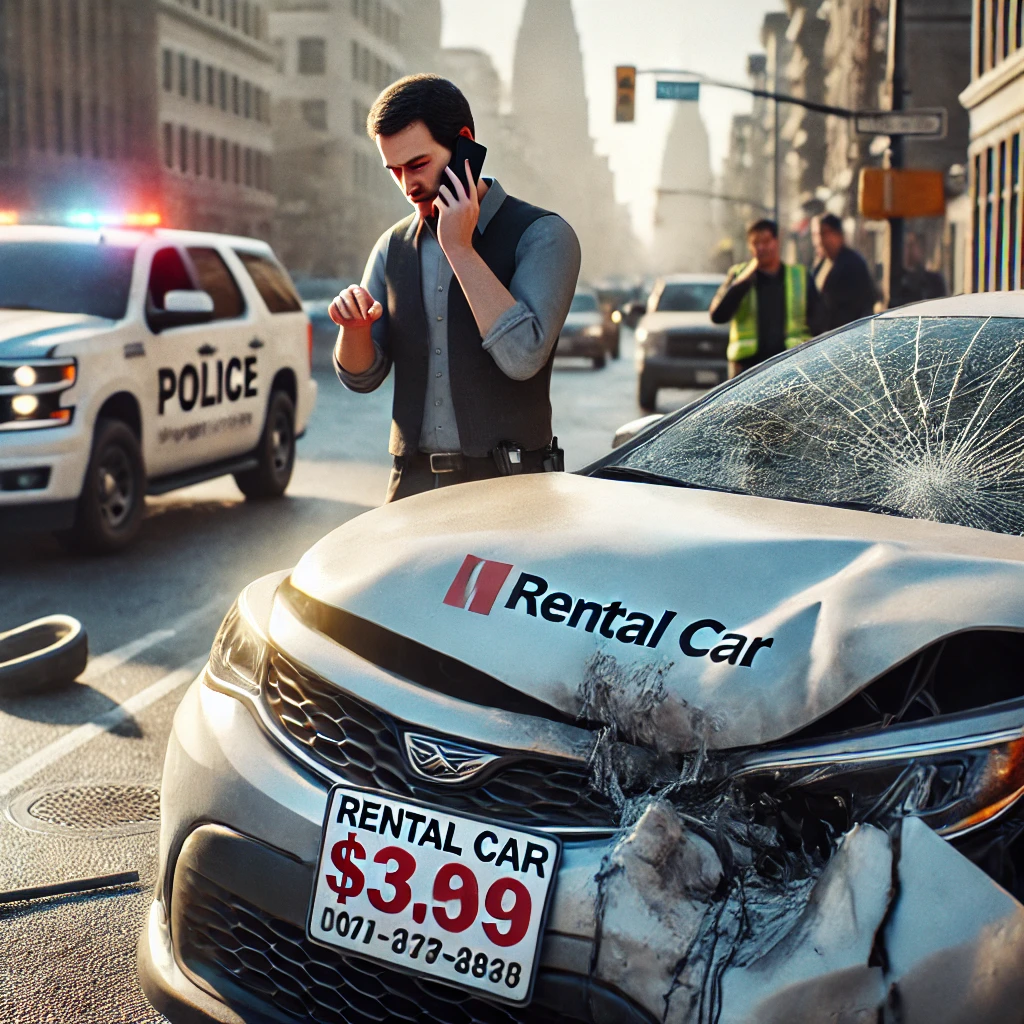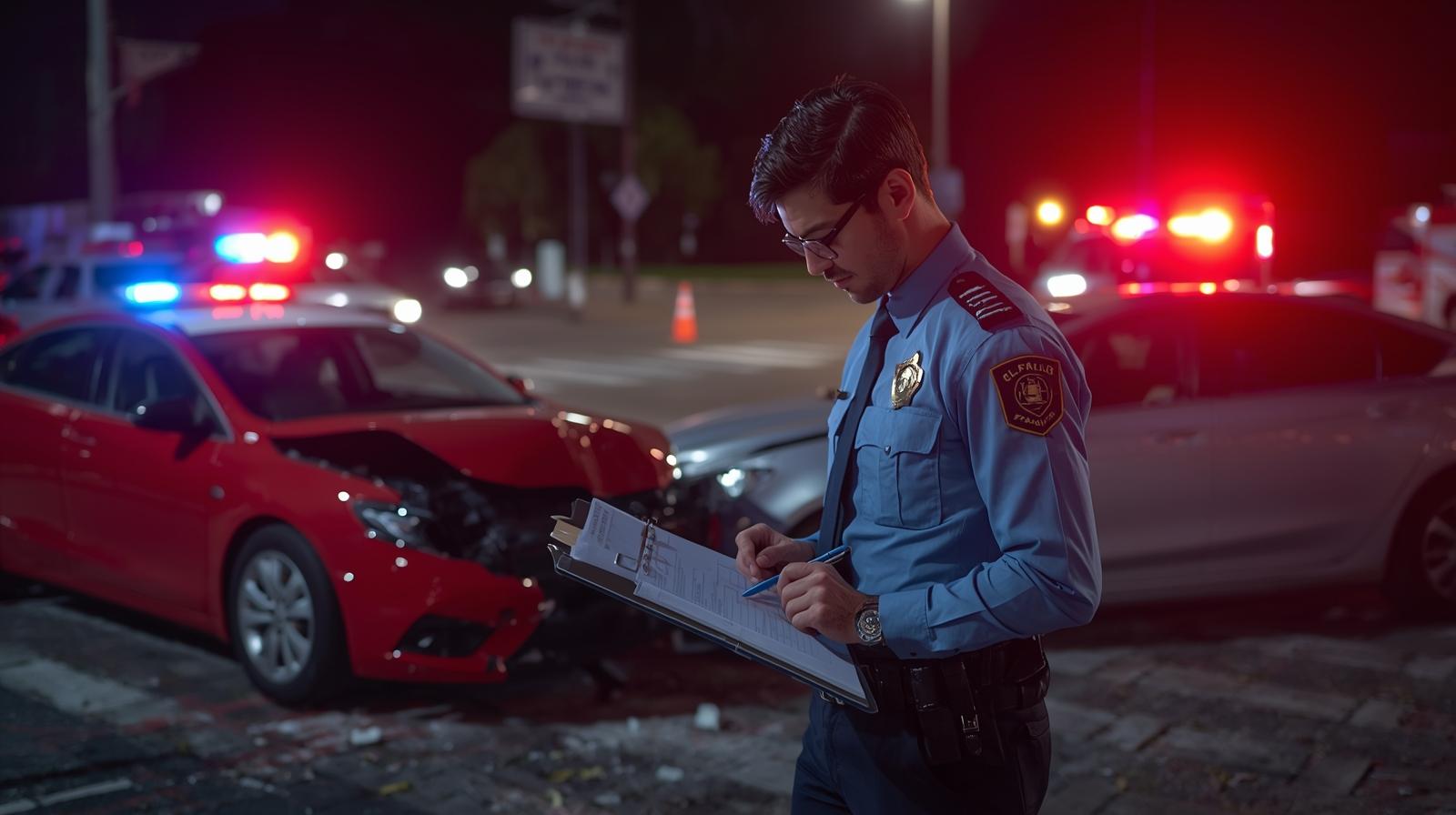What Happens If You Crash a Rental Car Without Insurance?
You’re at the rental car counter, tired after a long flight. The agent asks, “Would you like to add our Collision Damage Waiver?” You decline, confident your credit card or personal policy has you covered—or perhaps you’re just in a hurry. But as you drive away, a nagging question emerges: what would *actually* happen if you got into an accident? What if that assumed coverage isn’t there?
Let’s be blunt: If you crash a rental car without any form of insurance or coverage, you are facing a financial catastrophe. You are personally liable for the full cost of repairing or replacing the rental car, any damages or injuries you cause to others, and a list of administrative fees. This can easily lead to tens or even hundreds of thousands of dollars in debt, lawsuits, and severe damage to your financial future.
Fortunately, many people have layers of “hidden” insurance they may not be aware of. This guide will break down the devastating costs of being uninsured, help you uncover potential coverages you might already have, and provide a step-by-step plan for what to do after a crash. Understanding this is crucial *before* you ever rent a car again.

The Anatomy of a Financial Nightmare: What You’re Liable For
When you sign that rental agreement, you are agreeing to return the car in the same condition. If you crash it without coverage, the rental company will pursue you relentlessly to recover every penny of their losses. Here’s what they will demand you pay for out-of-pocket:
- Full Repair or Replacement Cost: You are responsible for the entire cost of repairs. If the car is declared a total loss, you owe its full Actual Cash Value (ACV) at the time of the accident. For a new model car, this can easily be $30,000 or more.
- “Loss of Use” Fees: The rental company loses money for every day their car is in the shop. They will charge you the daily rental rate for that vehicle until it’s repaired or they receive a check for its total loss value. This can add up to thousands.
- “Diminished Value” Claims: Even after perfect repairs, a car with an accident history is worth less. The rental company can—and often will—bill you for this loss in resale value, which can be thousands of dollars.
- Towing and Administrative Fees: You’ll be billed for towing, storage fees at the yard, and the rental company’s internal administrative costs for handling the claim.
- Third-Party Liability: This is the most financially dangerous part. If you were at fault, you are personally responsible for:
- Property Damage: The full cost of repairing any other vehicles, buildings, or property you damaged.
- Bodily Injury: The medical bills, lost wages, and pain and suffering of anyone you injured. A single serious injury can easily exceed $100,000.
This is Not a Bill You Can Ignore
Rental car companies are aggressive in their collections. If you fail to pay, they will send your debt to a collection agency, report it on your credit, and will likely file a lawsuit against you. A court judgment can lead to wage garnishment, bank account levies, and liens on your property.
Uncovering Your Hidden Insurance: Are You *Really* Uninsured?
The scenario above is the worst-case. The good news is that many U.S. drivers have coverage from other sources and may not even realize it. Before you panic, you need to know about these potential safety nets.
1. Your Personal Auto Insurance Policy
If you own a car and have your own insurance policy in the U.S., it often extends to rental cars. If your personal policy includes collision, comprehensive, and liability coverage, this coverage typically transfers when you rent a car for personal, non-business use within the United States. This is your strongest and most important line of defense. However, there are caveats: your coverage limits and deductibles still apply, and it may not cover all the fees like “loss of use.”
Expert Tip: NEVER assume you’re covered. Before you rent, call your insurance agent and ask two questions: “Does my policy cover rental cars?” and “Are my coverage limits high enough for a potential major accident?”
2. Your Credit Card’s Rental Car Coverage
Many premium travel and rewards credit cards offer a Collision Damage Waiver (CDW) as a perk. This is an excellent benefit, but it has critical limitations:
- It’s Almost Always Secondary: This means the credit card coverage only kicks in *after* your personal auto insurance has paid out. It will cover your deductible and may cover some fees your primary insurance doesn’t, but you still have to file a claim with your personal insurer first.
- It Is NOT Liability Insurance: Credit card benefits cover damage or theft of the rental car only. They provide absolutely no coverage for damage you cause to other vehicles or injuries to other people.
- You Must Decline the Rental Company’s CDW: To activate the credit card benefit, you must decline the rental company’s own CDW/LDW at the counter. You must also pay for the entire rental with that specific card.
3. The Rental Company’s Insurance Options
This is the insurance you are offered at the counter. While often expensive, it provides the most direct path to being covered.
| Coverage Type | What It Does | When You Might Need It |
|---|---|---|
| Collision/Loss Damage Waiver (CDW/LDW) | Waives your financial responsibility for any damage or theft of the rental car itself. It is not technically insurance but a waiver from the company. | If you have no personal auto insurance, if your deductible is very high, or if you want total peace of mind without involving your own insurer. |
| Supplemental Liability Insurance (SLI) | Covers damage to other people’s property and their medical bills if you’re at fault. This is liability coverage, often up to $1 million. | If you have no personal auto insurance or if your personal liability limits are low. This is arguably the most important coverage to have. |
| Personal Accident Insurance (PAI) | Covers medical expenses for you and your passengers. | If you don’t have good health insurance or want to supplement your existing coverage. |

Step-by-Step: What to Do Immediately After Crashing a Rental Car
Your actions in the first few hours are critical. Stay as calm as possible and follow this checklist.
- Prioritize Safety: Check for injuries. If anyone is hurt, call 911 immediately. Move the vehicles out of traffic if it’s safe to do so.
- Call the Police: Insist on a police report, even for a minor accident. The rental company and your insurance will require it. This is non-negotiable.
- Document Everything: Use your phone. Take dozens of photos and videos of all vehicles from every angle, the road conditions, and any relevant signs. Get the other driver’s name, contact info, and insurance details. Get names and numbers of any witnesses.
- Notify the Rental Company: Call the emergency number on your rental agreement or keychain right away. They will tell you how to proceed.
- Do NOT Admit Fault: You can state the facts of what happened, but do not apologize or say “it was my fault.” Let the police and insurers determine liability.
- Notify Your Insurers: As soon as possible, call your personal auto insurance agent to start a claim. If you plan to use credit card coverage, call the benefits administrator number on the back of your card to initiate that process as well.
The Aftermath: The Importance of Good Insurance
The stress and high cost of a rental car accident underscore the absolute necessity of having a robust personal insurance policy. This isn’t the place to cut corners. Before you ever travel, it’s wise to review your coverage. The best strategy is to get multiple auto insurance quotes online to compare coverages and prices. This allows you to find not just the cheapest car insurance providers, but a company that offers comprehensive protection. A strong policy is your best defense to ensure you always have the best car insurance rates and the peace of mind you need on the road, whether at home or away.
Proactive Protection: Tools for the Prepared Traveler
Being prepared can make a world of difference in the outcome of an accident. These tools can help protect you both physically and financially.

VIOFO A119 V3 Dash Cam
A dash cam is your silent, unbiased witness. In a disputed-fault accident, video evidence can prove your innocence, saving you from financial ruin. It’s an essential tool for any driver and easy to mount in a rental car.
Check Price on Amazon
resqme Car Escape Tool
This life-saving tool fits on your keychain. In a serious accident, it can cut a jammed seatbelt and break a side window, allowing you to escape. It’s a small investment that provides invaluable peace of mind for you and your passengers.
Check Price on Amazon
Anker Portable Power Bank
After a crash, your phone is your lifeline for calling 911, taking photos, and contacting your insurance. A dead battery is not an option. A reliable power bank ensures you stay connected when it matters most.
Check Price on AmazonFrequently Asked Questions (FAQ)
What happens if the accident wasn’t my fault?
The other driver’s insurance should ultimately pay. However, the rental company wants its car fixed immediately. They will often pressure you to use your own coverage first and then let your insurer subrogate (recover the money) from the at-fault party’s insurance. This is another reason having your own coverage is so important.
What if an unauthorized driver crashes the rental car?
You are in serious trouble. Your rental agreement is likely voided, meaning any insurance you bought from the rental company is null. Your personal and credit card insurance will almost certainly deny the claim as well. You will likely be held personally responsible for all damages.
Does this advice apply if I’m renting a car outside the U.S.?
No. Your personal U.S. auto policy almost never covers you internationally (Canada is sometimes an exception). When renting abroad, you should strongly consider purchasing the full liability and damage waiver coverage offered by the local rental agency.
Can the rental company charge my credit card for the damages?
Yes. Your rental agreement gives them the right to charge your card on file for damages, fees, and deductibles. If the charge is denied, they will begin the collections process outlined above.
Conclusion: The 5-Minute Check That Saves Thousands
Crashing a rental car without insurance is a completely avoidable financial disaster. The solution is simple: a 5-minute pre-rental check. Before you book your next rental, make two calls: one to your insurance agent and one to your credit card company. Understand exactly what you’re covered for. Armed with that knowledge, you can confidently accept or decline the coverage at the rental counter, knowing you are fully protected.
Never leave it to chance. Being an informed renter is the difference between a minor inconvenience and a life-altering financial burden.